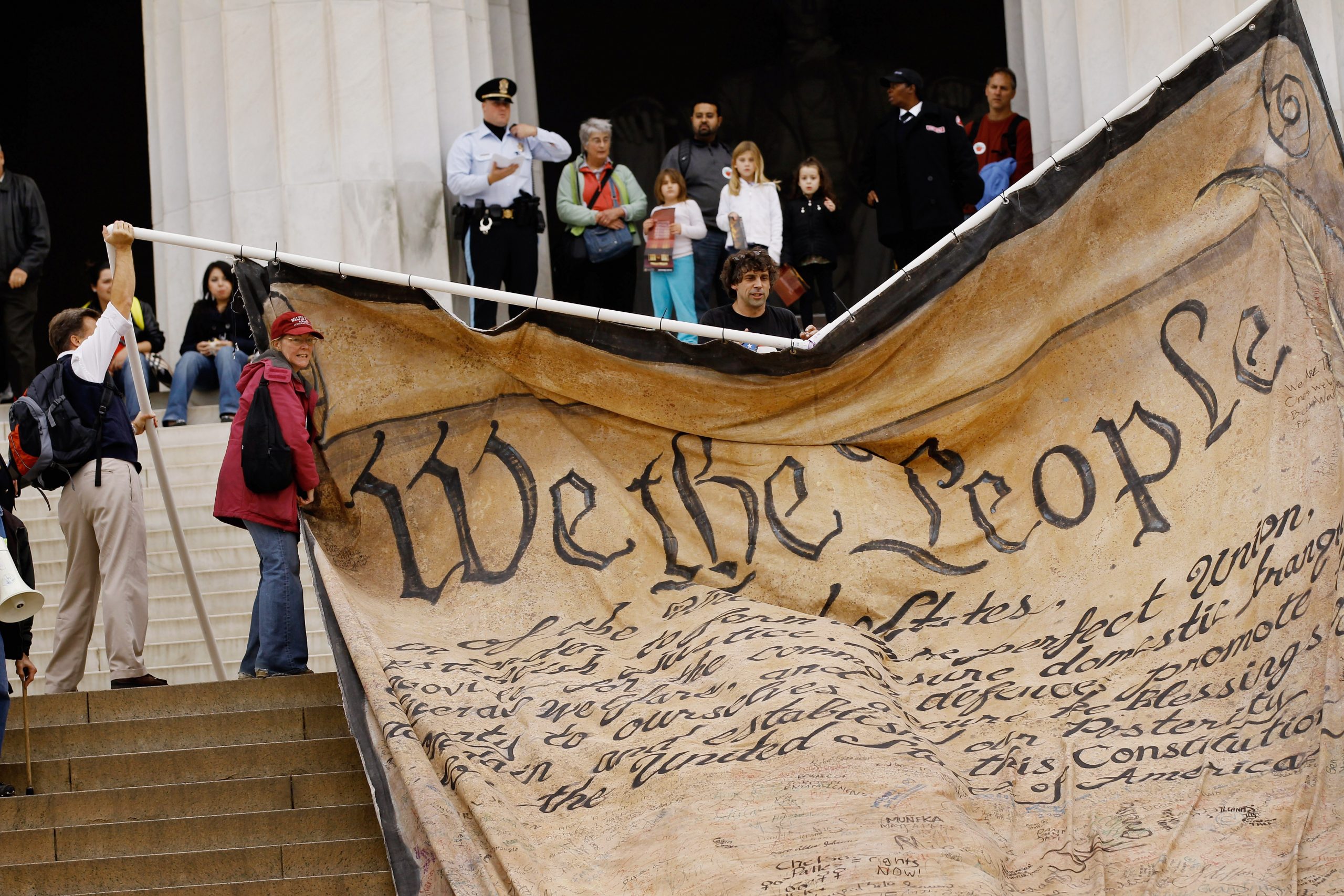
For months, Gov. Ron DeSantis has been riding a wave of conservative moves, such as banning Critical Race Theory, supporting proposed civic standards that don’t include the word slavery and requiring campus surveys to ensure conservative ideas are not suppressed.
Now, DeSantis has vetoed a civics education bill, SB 146 — which got bipartisan support from lawmakers — in part because of what’s called “action civics,” which critics consider leftist.
What does action civics mean?
According to a commentary posted on the website of The Heritage Foundation, a nonprofit, conservative think tank, action civics “encourages students to participate in protests and demonstrations more than study history and our founding ideals, and understand the structure of American government.”
In another article, from the conservative National Review said “the bill is likely to bring leftist ‘action civics’ to Florida.”
“Action civics inappropriately politicizes schooling by authorizing student political protests and lobbying for course credit,” the article reads. “That is wrong in principle. Also, through a combination of teacher bias, peer pressure, and the influence of politically biased non-profits, the action-civics ‘projects’ in question almost invariably support the political Left.”
The bill, SB 146, would have required high school students to participate in a practicum intended to “inspire meaningful civic engagement and help students learn how governmental entities at the local, state or federal level interact with the public which they represent and serve.”
But in a message about the veto, DeSantis says that SB 146 “seeks to further ‘action civics’ but does so in a way that risks promoting the preferred orthodoxy of two particular institutions.”
Two institutions are mentioned in the bill: The University of South Florida campus in St. Petersburg and a nonprofit YMCA.
The bill was sponsored by Sen. Jeff Brandes, a Republican who represents part of Pinellas County. During the 2021 session, SB 146 received unanimous support from both legislative chambers before it was sent to the governor’s desk.

Brandes told the Phoenix that he was “shocked” by the veto. He said that throughout the 2021 session, he had been in contact with the governor’s office about the legislation.
“They have never raised concerns,” he said. Brandes called the veto explanation “nebulous” and said he would need to speak with DeSantis himself to find out what would need to change in order to potentially propose similar legislation next session.
The bill would have established the Citizen Scholar Program, intended to combine “academic instruction with the implementation of concepts learned into the local community… to improve civic literacy and expand educational experiences for students.” High school students who completed the program could have received up to six undergraduate credit hours.
The program would have been created within the University of South Florida and headquartered at the St. Petersburg campus. That is because of the campus’s “commitment to enhancing civic literacy and community engagement in the next generation of leaders,” the bill language states.
The bill then would have had USF St. Petersburg contract with the nonprofit YMCA to “provide students participating in the YMCA Youth and Government program the opportunity to be designated Citizen Scholar and earn undergraduate credit.”
Also, high school students would have been required to participate in a civics activity, such as taking up an unpaid government internship, or learning about the U.S. citizenship naturalization process and attending a naturalization oath ceremony. Then the student would have been required to write a research paper reflecting on their experience.
According to the veto message, DeSantis wrote that his administration has worked to strengthen civics instruction.
Adam Freeman, a spokesperson for USF, responded to the governor’s veto Wednesday, saying in part that, “We recognize that the Governor has the authority to veto all bills passed through the Legislature and we understand he has done so with SB 146.”
DeSantis has been targeting civics education initiatives in Florida schools, including banning Critical Race Theory, which analyzes how America’s legal systems uphold oppression of people of color. Also banned is material from New York Times’ The 1619 Project, which explores American History by focusing the narratives, experiences, and contributions of Black people in America.
Meanwhile, DeSantis has already approved other civic education bills, such as mandating students to compare political ideologies, like communism and totalitarianism, that conflict with principles of freedom and democracy.
The governor also approved legislation requiring high school students to take a civics literacy exam, though it appears to be a low-stakes test. At the college level, post-secondary students must demonstrate civic literacy through passing an assessment and taking a course on civic literacy in order to graduate.
DeSantis also signed legislation that requires colleges and universities to annually conduct a survey to measure “intellectual freedom and viewpoint diversity,” based on a concern that college and university campuses suppress conservative thoughts and ideas.
The post DeSantis vetoes civic education bill citing 'action civics' -- programs that critics call leftist first appeared on Daily Florida Press.
from Daily Florida Press https://dailyfloridapress.com/desantis-vetoes-civic-education-bill-citing-action-civics-programs-that-critics-call-leftist/
No comments:
Post a Comment